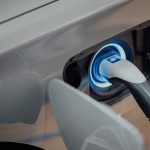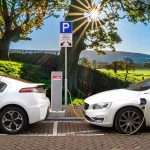Last Updated on December 17, 2022 by
There is a correlation between the number of times you use your electric car and the rate at which its battery will eventually fail. Even if you take great care of your electric vehicle, eventually it will break down due to normal wear and tear.
One of the most important factors in ensuring your EV’s longevity is the health of its battery.
Do electric vehicles break down less?
As for the short version of the answer, the answer is no. How far you can drive an electric car depends on how fast you drive and how you drive.
If you want more miles between charges, don’t use regenerative braking in the city. The idea of regenerative braking is to convert the kinetic energy of braking into electrical current that can be used to refuel the vehicle.
You have the advantage of knowing how much juice is remaining in your battery thanks to your dashboard, reducing the likelihood of a dead battery out in the middle of nowhere. As a result of these developments, electric vehicle owners are better informed about the health of their vehicle, resulting in fewer breakdowns.
Nonetheless, electric cars still occasionally have mechanical failures. The usage of the air conditioner, keeping the heat on in the seats, and driving at high speeds can all contribute to the early demise of your EV.
Using the pre-cooling function, you can prevent the interior temperature from rising too high when driving your electric car.
How long will an electric car last?
EV batteries go through cycles of “discharge” and “charge” when the car is being driven and when it is plugged in. When you do this over and over, it changes how much charge the battery can hold.
This cuts down on how far and long it takes to charge between each trip. Most manufacturers back up their batteries for five to eight years.
But experts think that a battery for an electric car will last between 10 and 20 years before it needs to be changed.
How do electric cars brake
Regenerative braking is a mechanism present in the majority of hybrid and electric automobiles. It transfers the kinetic energy from breaking into electrical power to charge the high voltage battery of the vehicle.
Additionally, regenerative braking slows the vehicle, which complements the use of conventional brakes.
In a typical braking system, the friction between the brake pads and rotors slows down the vehicle. However, this technique is quite poor when it comes to energy conservation.
When you press the brakes, nearly all of the kinetic energy moving your car forward is converted to heat. That’s a lot of energy lost!
This issue is resolved by recuperating up to 70 percent of the kinetic energy that would otherwise be wasted while braking. The amount of energy recovered is dependent on your vehicle’s make and your driving style.
Do electric cars break down alot?
The longer you drive your electric car, the greater the risk that the battery will become damaged. Maintaining your electric car to its finest possible condition can result in small wear and tear, which will eventually lead to a breakdown.
One of the key reasons why you should keep your electric vehicle (EV) in the best shape possible is because of the quality of its battery.
Can you drive and charge an electric car in the rain?
The second scenario is one in which you are charging your device when it is raining. In this scenario, you do not need to be concerned about anything when you are handling charging wires.
Because the charging connection and every component are weatherproof, electric vehicles (EVs) can be charged even when it is raining. Or if there is a sudden downpour when an EV is being charged, in any case, there is no need for concern.
What are 3 disadvantages of electric cars?
The number of charging stations you have access to depends on where you live. Some places have enough charging stations, while in other places it might take a little longer to find one.
When buying an electric car, range is an important thing to think about.
Batteries are the heart of an electric vehicle (EV). They store electricity and give the car the power it needs to move. Batteries are one of the most expensive parts of an EV because of this.
Common problems with electric cars
The most prevalent complaint among owners of electric vehicles is the time required to charge the vehicle. You will likely spend more time charging your electric vehicle than fueling your internal combustion engine vehicle.
When it comes to fueling an ICE vehicle, all vehicles utilize the same hose. However, there is no universal charger for electric vehicles, which can be annoying for new owners who are inexperienced with their electric vehicle or electric vehicles in general.
Fewer charging stations exist in the United States than there are cars. This can be frustrating, particularly if your automobile is going to die and you are hundreds of miles from home.
What is the biggest problem with electric cars?
Display screens, external door lights, failed temperature sensors, uneven paint, and seals and weatherstripping have been recurring issues for EV owners.
Not only do these issues exist, but they occur more frequently than with traditional automobiles.
Maintenance on electric cars vs gas
Some EV enthusiasts may argue that because electric vehicles are less expensive to fuel and repair, they are also less expensive to buy and operate.
EV doubters will reply with the premium pricing of many EVs, which is quantifiable when a brand offers both a gas-powered and an all-electric version of the same vehicle.
So, are EVs truly less expensive to own over the long haul? Kind of. Sometimes. It is, as they say, complicated.
Why are people not buying electric vehicles?
A significant barrier to entry for the electric vehicle market is the higher initial purchase price. This can be countered by the low costs of fuel, running and maintenance, as well as tax benefits.
It is still a deciding issue for many people because for the same money, one can get a larger gasoline-powered vehicle.
Do electric cars need oil changes?
Electric vehicles do not require frequent oil changes due to the absence of pistons, valves, and other moving parts that require lubrication. Electric vehicles have whole separate drivetrains, so you will never need to worry about frequent oil changes, as is required for conventional vehicles.
Disadvantages of electric cars
Electric cars have their own set of advantages but there are some disadvantages of electric cars that you should know about. They are:
- An electric car can’t travel as far as a conventional vehicle.
- There are insufficient charging stations.
- Electric vehicles can be costly to purchase.
Electric car maintenance
Despite the fact that electric vehicles may still be more expensive to purchase than their conventionally powered counterparts, they are typically less expensive to operate because of economical home charging.
In addition to saving their owners money on an ongoing basis, electric vehicles have lower long-term maintenance costs.
EVs eliminate more than two dozen mechanical components that would otherwise require periodic maintenance. The owner of an EV is exempt from expenses such as tune-ups, oil changes, cooling system flushes, transmission service, and replacement of the air filter, spark plugs, and drive belts.
Sources indicate that electric vehicle owners spend around a third less on routine maintenance than owners of conventionally powered vehicles.
EVs are not, however, maintenance-free. In order to maintain a vehicle’s warranty, all automakers need owners to perform a series of periodic inspections and maintenance.
If you do not follow the prescribed maintenance schedule, your vehicle’s repairs may not be covered.
FAQ relating to Do electric vehicles break down?
How much does it cost to replace an electric car battery?
The price of a lithium-ion battery can range anywhere from 15,000 to 20,000 Indian rupees (Rs.) per kilowatt-hour in India.
What problems do electric cars have?
Consumer Reports has identified a number of issues, some of which are related to:
- Electronics found in vehicles
- Systems of the climate
- Noises and leaks
- Drive systems
- Power equipment
- Body hardware
How many hours does it take to charge an electric car?
The time needed to fully charge an electric vehicle might range anywhere from thirty minutes to more than twelve hours. This is dependent on the battery capacity as well as the rate at which the charging point can supply power.
It takes a typical electric vehicle, which has a battery capacity of 60 kWh, little under 8 hours to charge full from empty using a charging port that is 7 kW in capacity.
What happens if your electric car runs out of battery?
If the battery in your EV is getting close to empty, the system will send you a lot of alerts. The warnings will tell you to look for EV charging stations in the area.
Also, modern EVs can give you a pretty good idea of how far they can go on the power they still have.
Key Takeaways
- One of the most important factors in ensuring your EV’s longevity is the health of its battery.
- The longer you drive your electric car, the greater the risk that the battery will become damaged.
- Maintaining your electric car to its finest possible condition can result in small wear and tear, which will eventually lead to a breakdown.
- Regenerative braking is a mechanism present in the majority of hybrid and electric automobiles. It transfers the kinetic energy from breaking into electrical power to charge the high voltage battery of the vehicle.
- Display screens, external door lights, failed temperature sensors, uneven paint, and seals and weatherstripping have been recurring issues for EV owners.
- Why Electric Vehicles Are Not Popular - January 29, 2023
- How Long Do Tesla Batteries Last Per Day? Battery Facts - January 25, 2023
- Do Electric Vehicles Have Air Conditioning? - December 21, 2022









